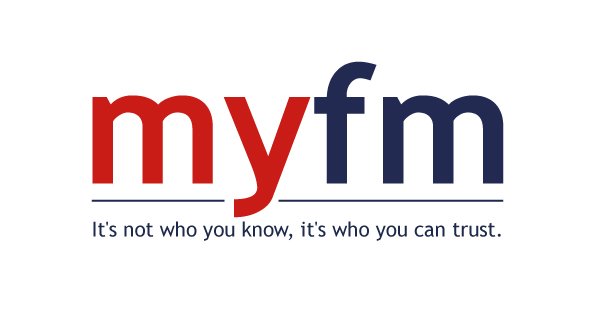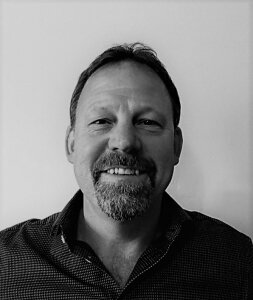The Roadmap to Sustainability in FM
In May we had a very inspiring Q&A call with Andrew Pollard, Chief Executive for BD Group. Despite his busy schedule, Andrew focuses a lot of his time and energy on making our world a better place as Chair of Sustainability West Midlands. Due to his level of expertise in the FM industry we couldn’t wait to hear what he had to say on the topic of sustainability in relation to FM...
Holly Lochinger:
"Andrew, thank you so much for taking the time to talk to us today. Could you start by telling us a little bit about Sustainability West Midlands and your role within the organisation please".
Andrew Pollard:
"I've been chair of Sustainability West Midlands (SWM) for a number of years. It’s one of the oldest established sustainability groups in the country having been established for 21 years now. It's not-for-profit, wholly owned by its members and despite its name, has influence well beyond the West Midlands.
For example, we've recently given independent advice to the Local Government Association (LGA) on retrofit and delivered to EELGA, the East of England LGA. In addition, we've worked with the UK Green Building Council.
As Chair, I'm a non executive, so not involved in the day-to-day work. SWM is led by Anna Bright, who's the Chief Executive and has been with the organisation for 10 years.
My interest in sustainability, generally and SWM in particular, was sparked by the fact that if you take carbon emissions as a whole, the land building property and construction sector, accounts for around 42%.
I wanted to be part of doing something about it and to be part of a group that leverages the power of its Membership. With just seven employees, that's what this group really does - leverages its Membership to establish best practice.
Our diverse Membership base includes research groups, the academic sector, major companies including groups involved in the land and property sector, SMEs, local authorities and a National Agency of Government – the Environment Agency.
When the combination of all of those Members, (there's 160 of them now) come together, we seek to share ideas and practice in order to achieve progression. We had our 20th Anniversary conference last year and I think what became clear was everybody has something to contribute to this agenda.
You can go for Big Bang solutions and Governments are quite inclined to do that. But actually I think we concluded the conference by considering that if everybody makes some incremental change to what they’re doing or to their approach, then the summation of all of those incremental elements is what's really going to make the difference here.
I hope by way of introduction that gives you a little bit of background on what I've been doing. Just a bit on me as well; I'm a Chartered Surveyor and Solicitor. I've been in the property business for 35 years working in the UK and Internationally, most recently as Chief Executive for BD Group. I have a number of interests and in sustainability particularly, as it's something that impacts all of us".
Holly Lochinger:
"You mentioned 'incremental changes' and the most simple of things can often be the most effective. Although we understand that in theory, what's been the general consensus amongst the SWM members in terms of 'domino impact factors'. Could you tell us a little bit more about that please?"
Andrew Pollard:
"I don't think there's just any one thing. What I've discovered when I've spoken to our Membership base is the wide number of aspects that Members are engaged in. Whether that's researching different power sources for various types of vehicles or biochar. This is something Aston University is pioneering the use of and has the potential to improve agricultural production.
Many businesses choose to recycle and promote 'cycle to work' schemes. The better businesses go about measuring their emissions the more incremental change can take place. Of course, the bigger businesses have to do this.
We can start small and essentially this begins with the individual.
Generally I found in my businesses that individuals want to actively engage on sustainability; social value also but of course sustainability is different from social value. A lot of people confuse the two. There’s similarities but this is about a sustainable planet and sustainable life and in all its forms. One of the key aspects of SWM is that it seeks to cover all forms of sustainability in its 2030 road map which has been published on the website. This is a really good set of eight priority areas for the membership and more widely.
The FM industry has made good strides. I think a lot of the commentary by the Institute of Workplace Facilities Management (IWFM) has been helpful on this, on consensus building across the piece. Technology is clearly going to play a major part in terms of FM businesses, helping not only improve efficiencies but also cut carbon emissions at the same time. Sensor technology and robotics are areas which undoubtedly will grow in the future".
Holly Lochinger:
"Would you say that from what you've witnessed and been involved in that these new practices are more cost effective or it can be a deterrent sometimes in terms of people getting their head around that that way of thinking"?
Andrew Pollard:
"I'm not so sure about cost at the moment being the ultimate driver. I think what we'll find overtime as a society is that labour becomes scarcer and so needs to look increasingly at technological solutions. There’s an up front cost of course and not necessarily immediate cost savings so it’s about making the case over a reasonable payback period".
Holly Lochinger:
"And time equals money as we know, so in the long run, it's beneficial all round"?
Andrew Pollard:
"It is, provided there are also opportunities for those that might otherwise have gained employment in particular sectors to gain education and training to be employed in other areas. That's how as a society, we should gain.
Holly Lochinger:
"Fantastic. What do you see the next several years entailing re: your initiatives and the work that you're involved in - what's the vision"?
Andrew Pollard:
"I'd love to give you a Big Bang vision. I'm not going to do that. I'm just going to say that what we want to do is spread the message about sustainability and being good citizens of the world. As corporate citizens and as professionals, we certainly should be pro-active in this.
An organisation that is Member owned like SWM, working in partnership with others, its members, other stakeholders, is a really good platform for that because it engages widely. And its impactful - two years ago we had just under 100 members, now it’s almost twice that. Members can see the mutual benefit that's not-for-profit, how it works for them and the benefit of wider society".
Holly Lochinger:
"What sort of means and channels are you using to gain exposure and create awareness for people"?
Andrew Pollard:
"So we have an annual conference for Members, but we also have various meetings, events, training sessions and options for non-members to get involved, to mingle as well with Members, coverage also through LinkedIn and Twitter channels and there's a lot on our website. In terms of a modest group, we're doing pretty well at spreading the word".
Holly Lochinger:
"Fantastic because it’s such a worthy cause. And like you said we all have a responsibility as an individual, but as a collective too - we can be really powerful and create so much change".
Andrew Pollard:
"Whether you're directly interested in it or not, everyone has a stake in this because everybody has a stake in the world".
We’re very grateful to Andrew for his time and contribution to this month’s newsletter and myfm fully support the wonderful work he’s doing.
Show your support by following Sustainability West Midlands LinkedIn page here
You can also visit their website for more information
Our experts are here to help with competency and your capacity-related demands.
Scroll through the myfm team below and click to find out more on their experience, skill set and how they can help your business and needs.





